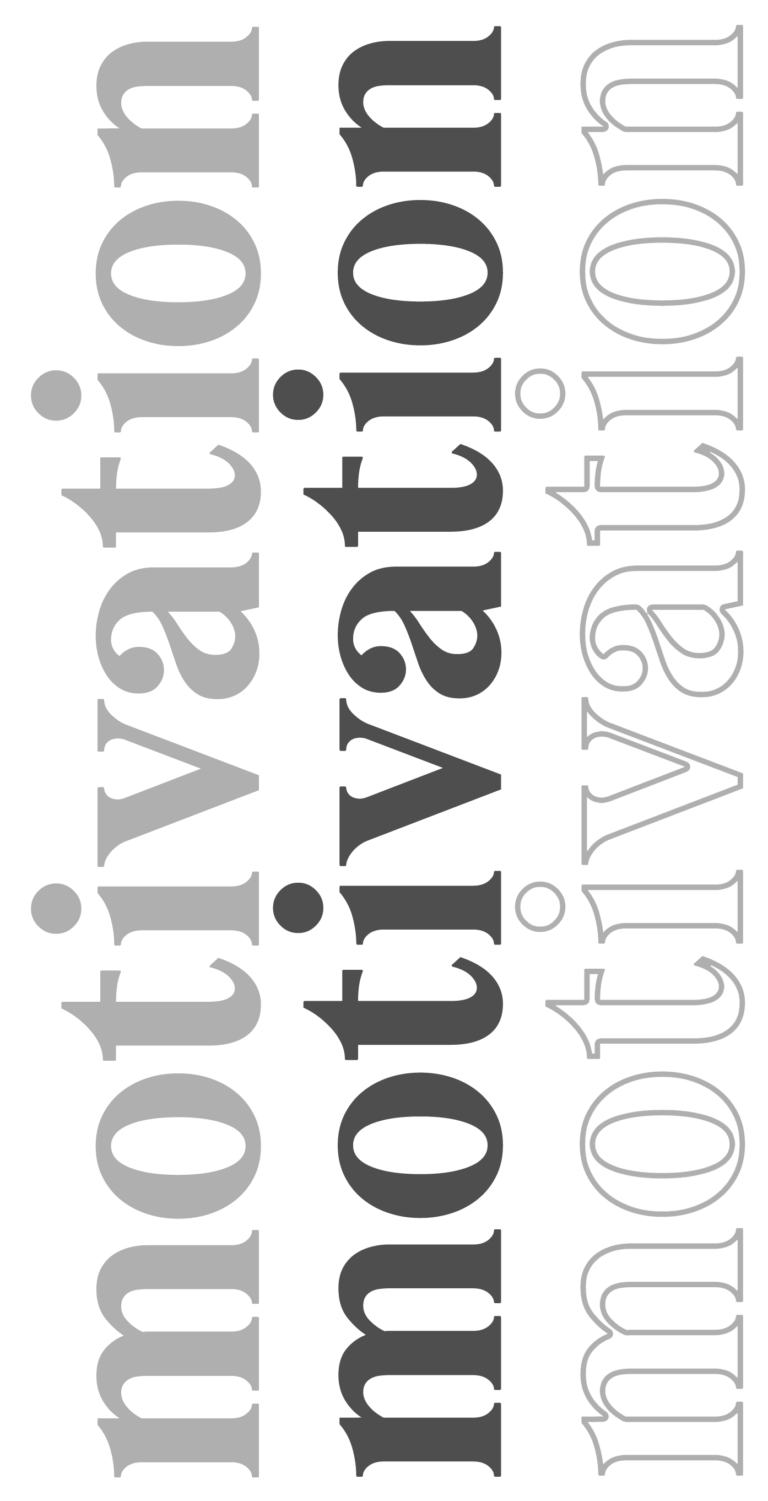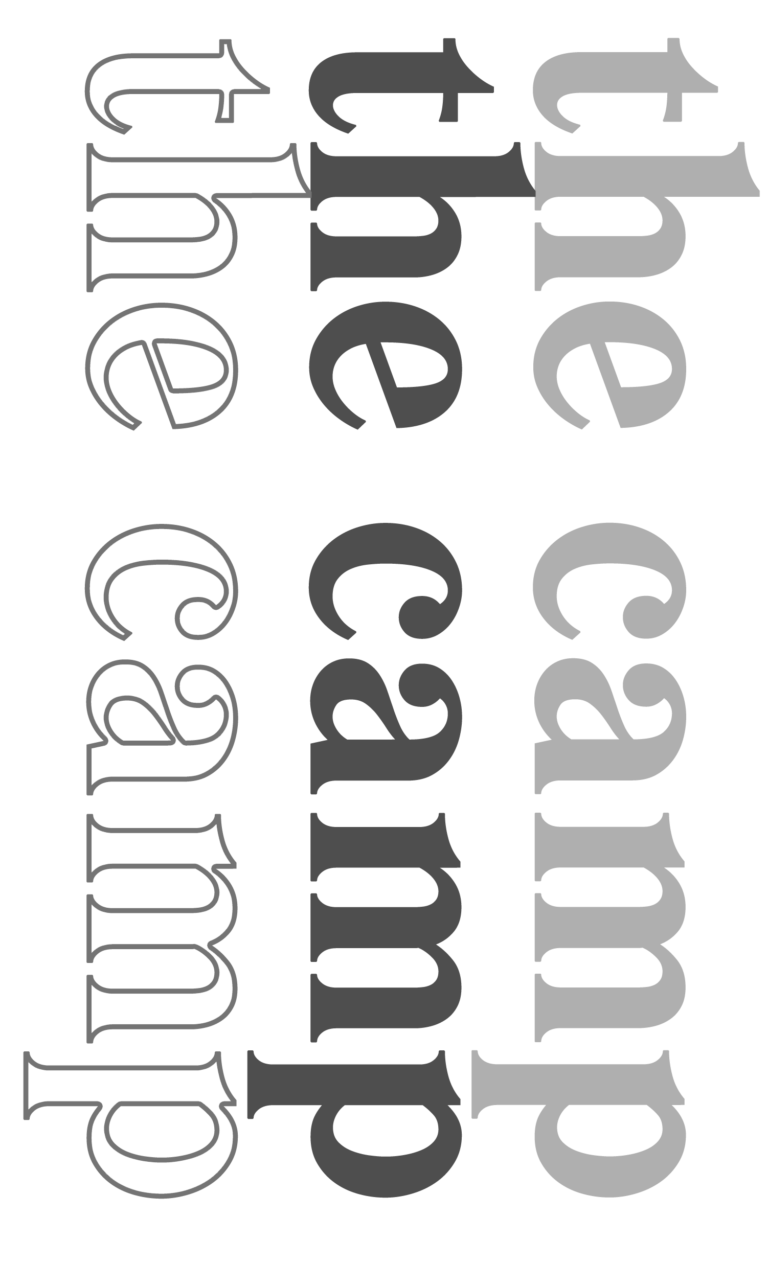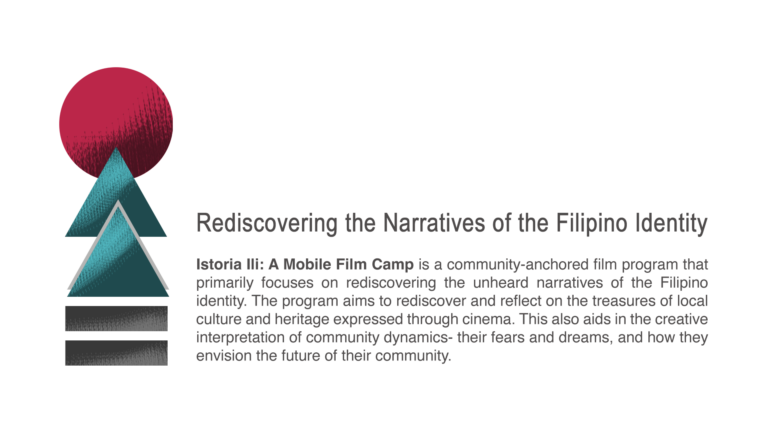
We all want to be represented!

Our prior motive in creating the Guild was to have an archive of our heritage through cinema to showcase them in different parts of the country. We then realized that our local identity, our features and our different hometowns were not represented in Philippine cinema.
As we then visited and conducted our programs, we then realized that accessibility to film and the craft of making it was not readily available to many communities outside urban areas. We were motivated to address and advocate film education programs that weren’t readily available in the area due to the difficulty in geographical access and inaccessibility to the internet. As we were being anchored with grassroots communities in our area, we have discovered that not only our communities were underrepresented but misrepresented in mainstream media and news.
Since mainstream news and media was the main source of information about other cultures, our communities in Northern Luzon were improperly represented- it was on a ‘third voice’. Cultures, symbolic activities and even identity were ‘interpreted’ from an ‘outsider’s perspective. The misinterpretation causes alienation of the local culture’s real meaning.
Thriving in Cagayan while advocating cinema in North Luzon has been quite a difficult battle not only to challenge the idea that art, particularly cinema, can be a source of inspiration and livelihood. That these are not just ornaments or accolades that carry our identity and culture but can be part of expressing it. It may be a recollection of the past, the reaction of the milieu the artist is in and a dream for the community or the artists for themselves.
Sometimes tangible artifacts that have been a part of one’s history are recognized as something valuable to one’s identity. Oral history is the most vulnerable thing prone to reframing and revisioning that could cause disconnect to the succeeding generations. Inspecting the history and current accounts of a community could determine the future of its plight- but what if there are few tangible records in the community? We strongly believe that the narratives of the communities are our connections of our identity, our past and our culture.
Inclusion of the unheard narratives.
Istoria Ili: Mobile Film Camp is a community-anchored film camp that primarily focuses on rediscovering the unheard narratives, particularly in Luzon in the Philippines, and, of the Filipino Identity. The film camp aims to rediscover and reflect on the treasures of local culture and heritage expressed through cinema. This also aids in the creative interpretation of community dynamics and their status quo- their fears and dreams, and how they envision the future of their community.
The organizers of the camp will be implementing in beneficiary communities from Luzon. The program’s duration in each area will be 7 days that will consist of community discussions (Arts & Heritage Talk), mobile film camp (Conceptualization to Film Production) and community screening.
Through coordination with academic institutions, local art collectives and local government units in the area, we will be partnering to implement the project with the communities. We will be utilizing available resources. Since we will also be catering to the indigenous people and different ethnic group, the organizers will coordinate with the Local Commission on Indigenous People to ensure that the IP communities will commit to the implementation of our program.
The program of activities will be delivered in the communities’ local languages: Iloko, Ibanag, Itawit, Malaweg, Filipino, to facilitate knowledge acquisition and information exchange.
Objectives
- Communicate local narratives through cinema in a safe and encouraging space.
- Provide the basic skills in cinema including factual research gathering and creative visualization through the use of readily available technology and resources.
- Instill community collaboration through creative programs and endeavors.
- Showcase other cultures and realities films from other communities to foster harmony and understanding.

Working with and for the community!

Connect
The Community Forum will be planned along with the target community leaders based on the needs assessment given to the organizers. The theme may be varied from the following range of topics: Local History, Local Cultures, Local Languages, Heritage Practitioner and Local Ethnic Groups. Resource speakers for the forum will be identified amongst the community members.
The main objective of the forum is to inspire the film camp participants on the topics they like to tackle for their film. It will be a first-hand information or ‘human-library-like’ knowledge exchange platform. To keep the community spirit and exchange of information flowing, we will encourage them to share their lectures or narratives in the local language.

Create
Participants will create a short film from start to finish, learning how to write, shoot, direct, and edit their own unique content. Participants learn each step of the filmmaking process, such as:
- Screenwriting: How to generate story ideas and format a final script
- Directing: The responsibilities of a director, such as how to make a Director’s Plan with shot sizes and storyboards
- Cinematography: Shot composition, movement, and basic lighting
- Editing: How to edit a short film using industry software
- Post Production: Sound design with music, as well as how to export and save film projects
The film camp participants will be encouraged to use available technology and resources to create their films- like mobile phone cameras. To tightly knit the collaboration with community members, we will collaborate with local talents.

Communicate
Aside from the films produced, films to be shown to the community will come from curated line up of films that may echo with the current situation of the community. The organizers plan to showcase- Philippine Archipelagic Cinema: Beyond the barriers and boulders.
The “Philippine Archipelagic Cinema: Beyond the barriers and boulders” curation addresses the undiscovered archipelagic narratives from the Philippines brought about by tangible and intangible barriers and boulders of regional films. The exhibition seeks to break these interferences through the voices, visual imagery, performances and messages that broadens the understanding of the Filipino plight, regional cultural diversity and claims for freedom and self determination.will


